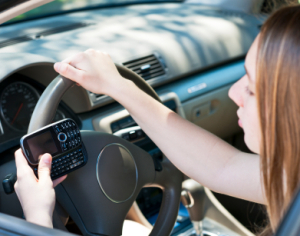 It’s back to school time and for many children, school is already in session. Today as I drove my son to school, I realized how important it is to use extra caution while driving, now that school is in session. This is the time of the year when we say goodbye to the leisurely summer traffic, and start sharing the road with hurried parents, new teen drivers, student pedestrians, and school buses. Not only do we want to send our kids off to school safely each day, but it is equally important that each of us make it to and from work safely. Why not start this school year by sharing the following safety tips from the National Safety Council:
It’s back to school time and for many children, school is already in session. Today as I drove my son to school, I realized how important it is to use extra caution while driving, now that school is in session. This is the time of the year when we say goodbye to the leisurely summer traffic, and start sharing the road with hurried parents, new teen drivers, student pedestrians, and school buses. Not only do we want to send our kids off to school safely each day, but it is equally important that each of us make it to and from work safely. Why not start this school year by sharing the following safety tips from the National Safety Council:
- Be extra vigilant in school zones and residential neighborhoods, especially near bus stops, playgrounds, and parks.
- Leave enough time to get your destination, so you won’t be tempted to speed.
- Never pass a vehicle stopped for pedestrians.
- Never pass a bus from behind – or from either direction if you’re on an undivided road – if it’s stopped to load or unload children.
- Be alert; children are often unpredictable, and they tend to ignore hazards and take risks.
- Be aware of inexperienced teen drivers who may struggle with judging gaps in traffic, driving the right speed for conditions, and turning safely.
- Avoid distractions such as eating, putting on makeup, or using your phone for texting, talking, or apps such as Pokémon Go.
- Acknowledge and encourage staff members who are willing to share ideas or experiences about how they exercised a little extra care and caution on the road.
- Talk to your children about being aware of their surroundings (no walking while wearing headphones or while texting or talking), crossing only at cross walks, always walking on sidewalks when possible, and looking left, right, then left again before crossing the street.
Though many of us have probably heard or shared these tips before, I like to live by the motto that it’s always better to be safe than sorry. Let’s join together in promoting a safe and accident-free school year. After all, nothing is more important than you, your family, and your staff making it home safely each day.
For more information or resources regarding this topic, please contact your loss control representative.
References:
“Slow Down: Back to School Means Sharing the Road.” Back to School Safety Tips for Drivers. National Safety Council, n.d. Web. 22 Aug. 2016.
“A Teen’s Biggest Safety Threat Is Sitting on the Driveway.” Teen Driving. National Safety Council, n.d. Web. 22 Aug. 2016.
Source: https://blog.central-insurance.com/2016/08/25/school-safety-saves-lives/
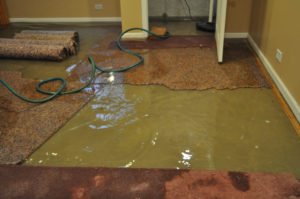 Take a moment to review your exposures with your independent insurance agent and allow him or her to offer you the proper coverages – such as water backup of sewers and drains – that are needed to protect your home.
Take a moment to review your exposures with your independent insurance agent and allow him or her to offer you the proper coverages – such as water backup of sewers and drains – that are needed to protect your home.
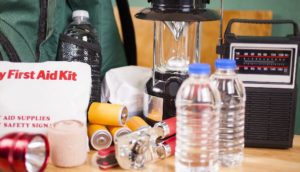 Windstorms, hurricanes, tornadoes, and wildfires are just a few examples of extreme weather events that occur throughout the United States on a regular basis. It is often difficult for even the experts to predict the impact and severity of these events. While the last thing anyone wants to think about is one of these events affecting them personally, it is very important to be prepared for a worst case scenario and have a plan in place. It is crucial to understand the area you live in and the potentially harmful events that could affect you and your community.
Windstorms, hurricanes, tornadoes, and wildfires are just a few examples of extreme weather events that occur throughout the United States on a regular basis. It is often difficult for even the experts to predict the impact and severity of these events. While the last thing anyone wants to think about is one of these events affecting them personally, it is very important to be prepared for a worst case scenario and have a plan in place. It is crucial to understand the area you live in and the potentially harmful events that could affect you and your community. Holidays also evoke a sense of celebration…and drink specials at your favorite bar or restaurant. Whether it’s the champagne of New Year’s Eve, the green-tinted cocktails of St. Patty’s Day, or the margaritas of Cinco de Mayo, the commercial underwriter in me sees the potential risks for the establishment involved.
Holidays also evoke a sense of celebration…and drink specials at your favorite bar or restaurant. Whether it’s the champagne of New Year’s Eve, the green-tinted cocktails of St. Patty’s Day, or the margaritas of Cinco de Mayo, the commercial underwriter in me sees the potential risks for the establishment involved. This phrase and its variations can strike fear into a person’s heart in ways that few others can. Is someone reading your e-mails? Do they have your credit card information? Do you use the same password on any other sites, rendering them vulnerable?
This phrase and its variations can strike fear into a person’s heart in ways that few others can. Is someone reading your e-mails? Do they have your credit card information? Do you use the same password on any other sites, rendering them vulnerable? When customers enter a restaurant or food establishment, they expect an attentive wait staff, friendly service, tasty food, enjoyable atmosphere and, most importantly, a clean environment. The health inspector has a major influence on your business’s good standing, but in today’s digital environment, you must also be mindful of what customers write on social media sites. The best approach to maintaining your good reputation and keeping customers coming back is to practice proper restaurant food safety. Here are some basic food safety tips to follow.
When customers enter a restaurant or food establishment, they expect an attentive wait staff, friendly service, tasty food, enjoyable atmosphere and, most importantly, a clean environment. The health inspector has a major influence on your business’s good standing, but in today’s digital environment, you must also be mindful of what customers write on social media sites. The best approach to maintaining your good reputation and keeping customers coming back is to practice proper restaurant food safety. Here are some basic food safety tips to follow. 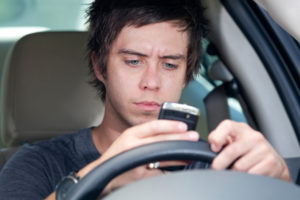 When driving home from work this week, I came face to face with a distracted driver. The driver was looking down, eyes off the road, texting!
When driving home from work this week, I came face to face with a distracted driver. The driver was looking down, eyes off the road, texting! December is here and along with it comes the familiar reminders that winter is quickly approaching. Turn on the radio and Christmas music is blaring, go to the store and see decorations and lights lining the shelves. It’s also that time of year again when you have to prepare your home for freezing temperatures.
December is here and along with it comes the familiar reminders that winter is quickly approaching. Turn on the radio and Christmas music is blaring, go to the store and see decorations and lights lining the shelves. It’s also that time of year again when you have to prepare your home for freezing temperatures.  It’s back to school time and for many children, school is already in session. Today as I drove my son to school, I realized how important it is to use extra caution while driving, now that school is in session. This is the time of the year when we say goodbye to the leisurely summer traffic, and start sharing the road with hurried parents, new teen drivers, student pedestrians, and school buses. Not only do we want to send our kids off to school safely each day, but it is equally important that each of us make it to and from work safely. Why not start this school year by sharing the following safety tips from the
It’s back to school time and for many children, school is already in session. Today as I drove my son to school, I realized how important it is to use extra caution while driving, now that school is in session. This is the time of the year when we say goodbye to the leisurely summer traffic, and start sharing the road with hurried parents, new teen drivers, student pedestrians, and school buses. Not only do we want to send our kids off to school safely each day, but it is equally important that each of us make it to and from work safely. Why not start this school year by sharing the following safety tips from the 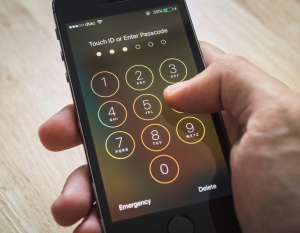 As we move further into the 21st century, technology innovations continue to improve and become more accessible, which means more and more people now own smartphones. Smartphones are more than just an expensive paper weight in your pocket; they’ve become a small computer in your hands. You can do everything from manage your bank account and shop for groceries, to catch imaginary creatures at the park. But the more we use these mobile devices, the more sensitive data they contain and the more we need to protect them. Here are some tips to keep your smartphone, and the information on it, secure:
As we move further into the 21st century, technology innovations continue to improve and become more accessible, which means more and more people now own smartphones. Smartphones are more than just an expensive paper weight in your pocket; they’ve become a small computer in your hands. You can do everything from manage your bank account and shop for groceries, to catch imaginary creatures at the park. But the more we use these mobile devices, the more sensitive data they contain and the more we need to protect them. Here are some tips to keep your smartphone, and the information on it, secure: